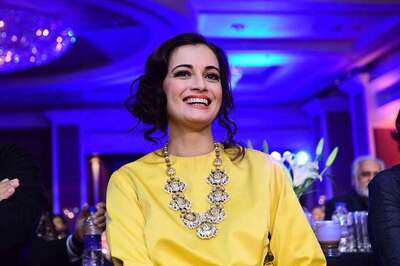
views
Mateela: For decades, not a single woman in this dusty Pakistani village surrounded by wheat fields and orange trees has voted. And they aren't likely to in next week's parliamentary election either. The village's men have spoken.
"It's the will of my husband," said one woman, Fatma Shamshed. "This is the decision of all the families." Mateela is one of 564 out of the 64,000 polling districts across Pakistan where not a single woman voted in the country's 2008 election. The men from this village of roughly 9,000 people got together with other nearby communities to decide that their women would not vote on May 11 either.
Next week's election will bring a major first for democracy in Pakistan, the first time a civilian government has fulfilled its term and handed over power to another. But women still face an uphill battle to make their voices heard in the political process, as voters, candidates and in parliament, where they hold 22 per cent of the seats in the lower house.
Women represent only about 43 per cent of the roughly 86 million registered voters, according to election commission data. In more conservative areas like Khyber Paktunkhwa province and Baluchistan, the percentage drops even further.
In places like Mateela, the fact that men decide women should not be allowed to vote is a decades-old tradition. Some men say women don't have the mental capacity. Other times they don't want wives and daughters to leave the house. Some simply don't see the point.
Yar Mohammed, one of the village elders, insists it isn't a matter of discrimination. The problem, he said, is that the local polling station is mixed gender.
"We stop our women from going to polling stations because we think if they do, men would tease them by staring (at) or touching them," he said.
Another deterrent to women voting has been that many don't have the proper identification card, called a CNIC card. Historically, many men in conservative areas haven't seen the need to send their wives or daughters to get the ID card or haven't wanted to pay for it.
The men in Mateela, however, say they are willing to let women vote if the election commission sets up a separate polling station. But the commission said that isn't possible because the voting lists have already been finalised.
















Comments
0 comment